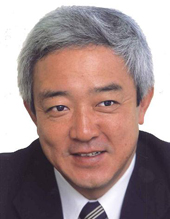This article may need to be rewritten to comply with Wikipedia's quality standards. (July 2018) |
Ryu Matsumoto | |
|---|---|
松本 龍 | |
 | |
| Minister of the Environment | |
| In office 21 September 2010 – 27 June 2011 | |
| Prime Minister | Naoto Kan |
| Preceded by | Sakihito Ozawa |
| Succeeded by | Satsuki Eda |
| Member of the House of Representatives | |
| In office 1990 – 16 November 2012 | |
| Succeeded by | Takahiro Inoue |
| Constituency | Fukuoka 1st district |
| Personal details | |
| Born | 17 May 1951 Fukuoka, Japan |
| Died | 21 July 2018 (aged 67) Fukuoka, Japan |
| Political party | DPJ (from 1998) |
| Other political affiliations | JSP (until 1996) SDP (1996) DP (1996–1998) |
| Relatives | Jiichirō Matsumoto (grandfather) |
| Alma mater | Chuo University |
Ryu Matsumoto (松本 龍, Matsumoto Ryū, May 17, 1951 – July 21, 2018) was a Japanese politician of the Democratic Party of Japan, a member of the House of Representatives in the Diet (national legislature). A native of Fukuoka, Fukuoka and graduate of Chuo University, he was elected to the House of Representatives for the first time in 1990 as a member of the Japan Socialist Party. He followed in the steps of his grandfather Jiichirō Matsumoto and father in command of the Buraku Liberation League. He was vice-chairman Buraku Liberation League when he advocated suppression of free speech.[1]
He resigned from the post of the Minister of Reconstruction and vice-chairman of the Buraku Liberation League after making harsh and abrasive criticism of the two governors from the area affected by the Great East Japan earthquake as well as threatening to ruin the career of any journalists who reported his remarks. He later apologised and then blamed his behaviour on his Fukuoka background and also on his B-blood type, a popular superstition in Japan.[2]
He criticized Matsumoto's intimidation that "Your company is over if you publicize my remarks" as the essence of the liberation alliance. [3][4] He died of lung cancer on July 21, 2018, at the age of 67.[5]
- ^ Japan Times 2010/06/08 Archived 2011-06-23 at the Wayback Machine
- ^ "Japan Reconstruction Minister Ryu Matsumoto quits". BBC News. 2011-07-05. Retrieved 2011-07-09.
- ^ "Japan Times 2010/06/08". Archived from the original on 2011-06-23. Retrieved 2011-07-06.
- ^ 2011年7月5日 Jcastニュース 共産党・小池前参院議員「松本大臣発言は部落解放同盟の地金」
- ^ 松本龍さん67歳=元民主党衆院議員、元復興担当相, Mainichi Shimbun.